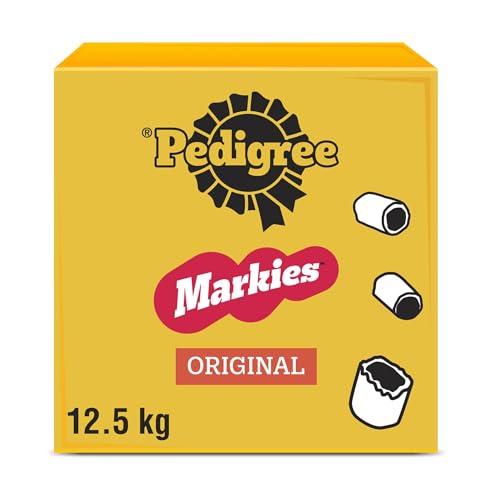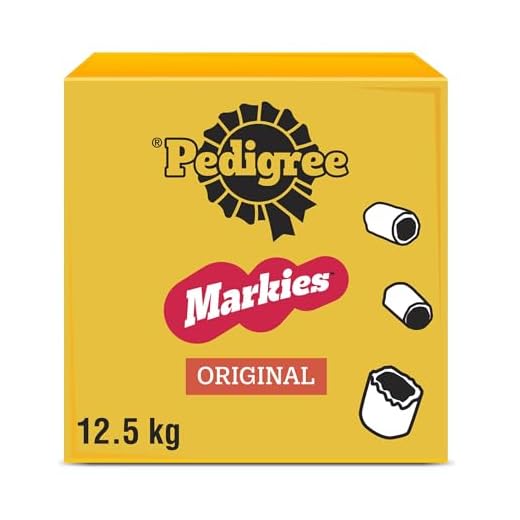




It’s best to steer clear of giving your furry friend any kind of pastry filled with meat. These baked goods often contain ingredients that aren’t suitable for their digestive systems and can lead to health issues. Opt for snacks specifically designed for canines instead, as these are formulated to meet their nutritional needs.
While it may be tempting to share your lunch, remember that many human foods can be harmful. For instance, the spices, seasonings, and additives found in these pastries can upset their stomachs or even be toxic. Always prioritise your pet’s well-being by choosing safer alternatives.
In my experience, I’ve learned that sticking to treats made for dogs not only keeps them healthy but also keeps them happy. It’s a win-win situation. So, resist the urge to share those tempting snacks and invest in quality dog treats that you know they will love.
Can Your Canine Enjoy Pastry Treats?
No, it’s not advisable to share this flaky delicacy with your furry friend. The ingredients typically found in these snacks can pose health risks. High salt content and the presence of onion and garlic are particularly concerning for their well-being.
Health Risks to Consider
- Salt: Excessive sodium can lead to dehydration and potential kidney issues.
- Onions and Garlic: These are toxic and can cause damage to red blood cells, leading to anaemia.
- Fats: Rich pastries can upset your pet’s stomach and lead to pancreatitis.
Safer Alternatives
If you want to treat your companion, consider these options instead:
- Plain Cooked Chicken: A great source of protein without harmful additives.
- Carrots: Crunchy and low-calorie, perfect for a healthy snack.
- Specialty Dog Treats: Available in pet stores, tailored for canine dietary needs.
Keep your companion safe and healthy by choosing appropriate snacks. It’s best to stick to what is specially formulated for their diet.
Understanding the Ingredients in Sausage Rolls
Check labels carefully before sharing any pastry with your furry friend. Common components in these treats can cause issues for pets. Pastry is often high in fat and salt, which can lead to digestive troubles or more serious health concerns over time.
Meat Fillings
The protein source in these pastries can vary significantly. Some may contain processed meats with additives, preservatives, or spices that are harmful. Always be cautious about the type of meat used; certain ingredients like onions and garlic are toxic to canines.
Spices and Seasonings
Many varieties include herbs and spices that might taste good to humans but could upset a pet’s stomach. Ingredients like pepper or other seasonings can lead to discomfort. If you want to treat your pet, stick to plain, unseasoned options that are safe and healthy.
Always opt for fresh, wholesome foods specifically formulated for pets when you want to reward your companion. Keeping them safe and healthy should be the priority.
Potential Health Risks for Pets Consuming Pastry Treats
It’s best to avoid giving flaky pastries to furry companions due to several health concerns. Firstly, these delightful snacks often contain high levels of fat and salt, which can lead to obesity and related diseases. A diet rich in calories without sufficient exercise can result in weight gain, increasing the risk of diabetes and joint problems.
Another significant issue is the presence of onions and garlic in many meat-filled pastries. Even small amounts can be toxic, causing gastrointestinal upset or more severe conditions like hemolytic anaemia. Symptoms may include lethargy, vomiting, and abnormal breathing.
Additionally, processed meats used in these treats might contain preservatives and additives, such as sodium nitrite, which can be harmful over time. These substances can contribute to various health issues, including pancreatitis, which is painful and requires immediate veterinary attention.
Furthermore, the flaky crust can pose a choking hazard, especially for smaller breeds. If a piece breaks off too large, it can become lodged in the throat, leading to distress or potential suffocation.
Always consult with a veterinarian before introducing unfamiliar foods into a pet’s diet. Keeping these tasty yet risky treats away from furry friends is the best approach to ensure their health and wellbeing.
Alternatives to Sausage Rolls for Your Dog
Instead of offering your furry companion processed pastries, consider these wholesome treats. Cooked chicken or turkey, without any seasoning, is a great protein-packed option. Simply boil or bake the meat, shred it, and serve it as a tasty snack.
Vegetables like carrots, green beans, and sweet potatoes can also be fantastic additions to their diet. These options are low in calories and provide essential nutrients. Just steam or bake them, and cut into manageable pieces for easy munching.
For a more indulgent treat, try making homemade peanut butter biscuits. Combine whole wheat flour, rolled oats, and unsweetened peanut butter, then bake until golden. These snacks are rich in flavour and safe for consumption.
Fish is another nutritious alternative. Cooked salmon or sardines are packed with omega-3 fatty acids, which promote a healthy coat and skin. Just ensure there are no bones before serving.
Fruits like apples and bananas can satisfy their sweet tooth. Just remember to remove any seeds or cores from apples. Slice into small pieces for a refreshing and healthy treat.
Lastly, consider commercial options designed specifically for canines. Look for products without harmful additives or preservatives. Always check the ingredient list to ensure the quality of what you’re giving.
How to Safely Share Food with Your Canine Companion
Always check that any treat you share is safe and healthy. For instance, fruits like apples and bananas make excellent snacks, but avoid seeds and pits. Ensure all food is free from harmful additives and spices. If you’re unsure about an ingredient, research it or consult your vet.
Portion Control is Key
Keep serving sizes small. Just a little taste can go a long way. Overloading your pet with human food can lead to digestive issues. If you’re preparing something like corn, you can reference how many minutes to cook corn in pressure cooker for perfect timing. Always let it cool before offering any bits to your furry friend.
Observe for Reactions
When introducing new foods, watch for any adverse reactions. Signs of intolerance include vomiting, diarrhoea, or unusual behaviour. If you notice anything unusual, stop immediately and consult your vet. Regularly sharing small amounts of safe foods can strengthen the bond between you and your pet while ensuring their health remains a priority.
Signs of Food Allergies in Canines
Immediate attention is necessary if you spot any unusual reactions after your furry friend consumes certain foods. The following signs might indicate an adverse reaction to specific ingredients:
- Itching and Scratching: Persistent scratching, especially around the ears, paws, or belly, can be a red flag.
- Gastrointestinal Distress: Vomiting, diarrhoea, or excessive gas often signals intolerance or allergy.
- Skin Irritations: Look for redness, rashes, or hives on the skin.
- Ear Infections: Frequent ear infections may point to dietary issues.
- Swelling: Any swelling, particularly around the face, muzzle, or paws, should be treated as an emergency.
Identifying Triggers
Tracking what your companion eats can help pinpoint triggers. Keep a food diary to monitor reactions. If you suspect a specific ingredient, consult a vet for potential allergy testing or an elimination diet.
Veterinary Consultation
Always seek professional advice if you notice any of these symptoms. A veterinarian can provide guidance on dietary adjustments and potential treatments to ensure your companion stays healthy and happy.
Consulting Your Vet About Your Dog’s Diet
Always consult your vet before introducing new foods into your pet’s meal plan. A professional can provide tailored advice based on your companion’s age, size, breed, and health status. Regular check-ups are a great opportunity to discuss dietary needs and any concerns regarding specific treats or human foods.
Key Considerations for Diet Consultation
Your vet may assess the following factors during your discussions:
| Factor | Importance |
|---|---|
| Age | Different life stages require different nutritional needs. |
| Weight | Maintaining a healthy weight is crucial for overall wellbeing. |
| Health Conditions | Specific conditions like allergies or sensitivities need careful management. |
| Activity Level | Active companions may need more calories and nutrients. |
Recommended Resources
For those looking for high-quality nutrition, explore options like best dog food for golden doodle puppies. This can ensure your furry friend receives the right balance of nutrients, especially if you’re considering sharing human foods.







